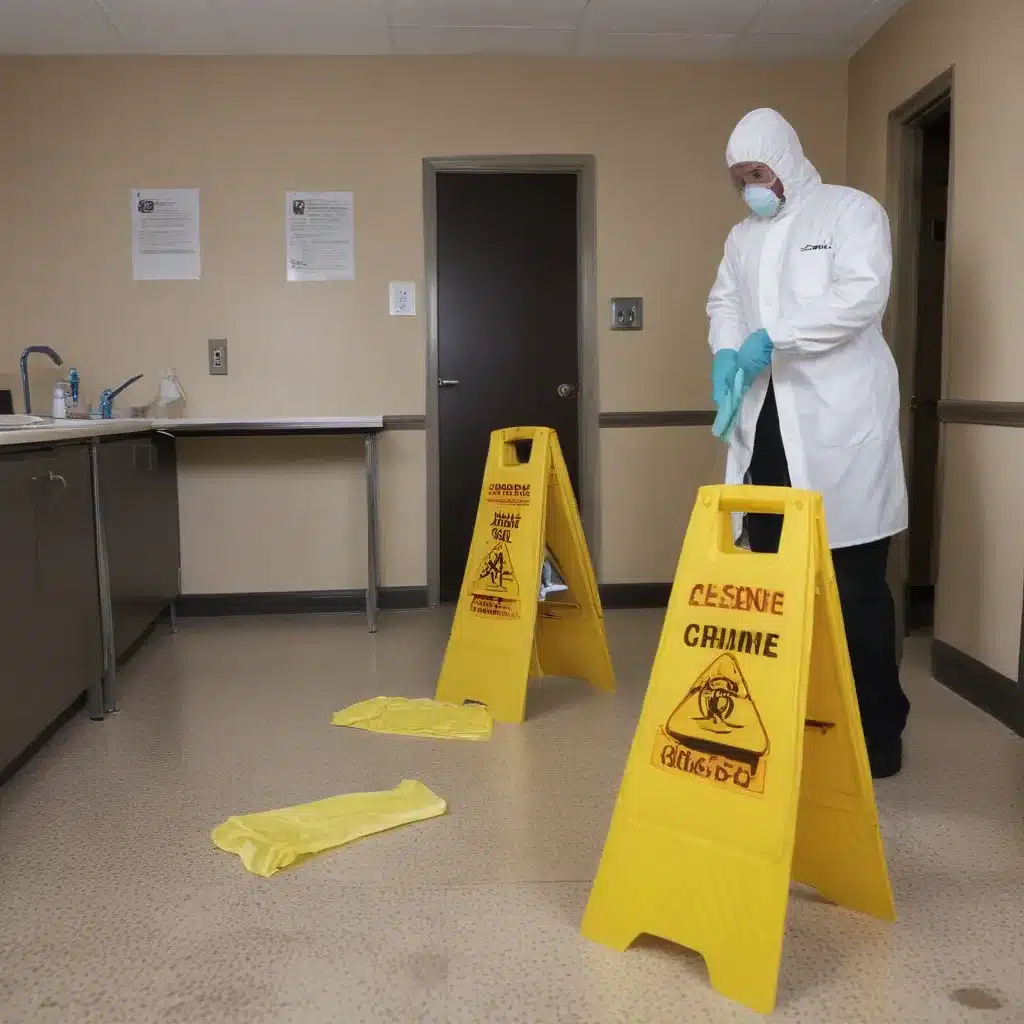Uncovering the Unseen: A Crime Scene Cleaner’s Journey
It was a cool autumn night when the call came in. As the owner of Adam Cleaning, a prominent crime scene cleaning service in Nottingham, UK, I had grown accustomed to these late-night emergencies. However, this particular job was anything but routine.
The police had responded to a violent altercation in a quiet residential neighborhood. By the time I arrived, the scene was still shrouded in an eerie silence, save for the occasional flashing of the squad car lights. As I stepped out of my van, the weight of the responsibility before me settled heavily on my shoulders. This was no ordinary cleanup – this was a task that required delicacy, compassion, and a deep understanding of the unseen wounds left behind by such acts of brutality.
Navigating the Complexities of Crime Scene Cleaning
Crime scene cleaning is a unique and often misunderstood profession. It’s not just about scrubbing away the physical evidence of a tragedy; it’s about restoring a sense of safety and dignity to a space that has been violated. Our team at Adam Cleaning has honed our skills over years of specialized training and hands-on experience, allowing us to navigate the intricate protocols and sensitivities required for this line of work.
As one of our seasoned technicians often reminds me, “It’s not just about the blood and the grime – it’s about the stories that linger in these spaces, the whispers of trauma that we must confront with the utmost care.”
Rethinking the Approach to Crime Scene Cleaning
The traditional approach to crime scene cleaning has often focused solely on the physical aspects of the job – the removal of biohazards, the sanitization of surfaces, and the restoration of the space to its pre-incident condition. While these technical aspects are certainly critical, we at Adam Cleaning believe that it’s time to reimagine the entire process.
As the public discourse around criminal justice reform continues to evolve, we recognize the need to adopt a more comprehensive, trauma-informed approach to our work. This means not only addressing the tangible evidence of a crime but also the intangible emotional and psychological impacts that linger long after the physical cleanup is complete.
Embracing a Holistic Approach
Our reimagined crime scene cleaning protocols at Adam Cleaning go beyond the surface-level tasks. We’ve incorporated specialized training for our technicians in areas like grief counseling, trauma-informed care, and conflict mediation. By approaching each job with empathy and a deep understanding of the human experience, we aim to provide a level of support and healing that goes far beyond the typical “clean-up crew” mentality.
As one of our clients recently shared with us, “It wasn’t just the physical mess that they cleaned up – it was the weight of what had happened, the sense of violation and fear that lingered in the air. They made me feel safe again, like I could breathe in my own home.”
Fostering Community Partnerships
At Adam Cleaning, we recognize that crime scene cleaning is not a siloed endeavor. By forging partnerships with local law enforcement, mental health professionals, and community organizations, we’re able to provide a more holistic approach to supporting those affected by traumatic incidents.
Just as the Citizen app has highlighted the need for improved communication and collaboration between the public and emergency services, we believe that our role as crime scene cleaners can serve as a crucial bridge between the community and the resources they need to heal.
Embracing the Emotional Burden
Cleaning up after a crime is not merely a logistical challenge – it’s an emotional and psychological undertaking that takes a toll on our technicians. We’ve made it a priority to provide comprehensive mental health support and self-care resources for our team, recognizing that the weight of this work can be overwhelming.
As one of our seasoned technicians shared with me, “It’s not just about the physical mess – it’s about the stories that linger in these spaces, the whispers of trauma that we must confront with the utmost care. That’s why we have to take care of ourselves, so we can be there for the people who need us most.”
Redefining the Crime Scene Cleaning Narrative
By embracing a holistic, trauma-informed approach to our work, we at Adam Cleaning aim to redefine the narrative around crime scene cleaning. It’s not just about the grim details and the technical aspects of the job – it’s about restoring a sense of humanity, dignity, and healing to those whose lives have been irrevocably altered by violence and tragedy.
As the public continues to grapple with the complexities of criminal justice reform and community-based approaches to public safety, we believe that our role as crime scene cleaners can be a vital component of a more compassionate, trauma-informed system.
By embracing this reimagined approach, we hope to not only provide exceptional cleaning services but to serve as a beacon of hope, resilience, and healing in the face of unimaginable devastation. After all, true restoration goes far beyond the physical – it’s about mending the unseen wounds that linger long after the dust has settled.







